GyeongGi Cultural Foundation
This is GyeongGi! A powerful new start!
This is GyeongGi! A powerful new start!
- GyeongGi Provincial Museum newly renovated in 25 years, reopened on August 4 -
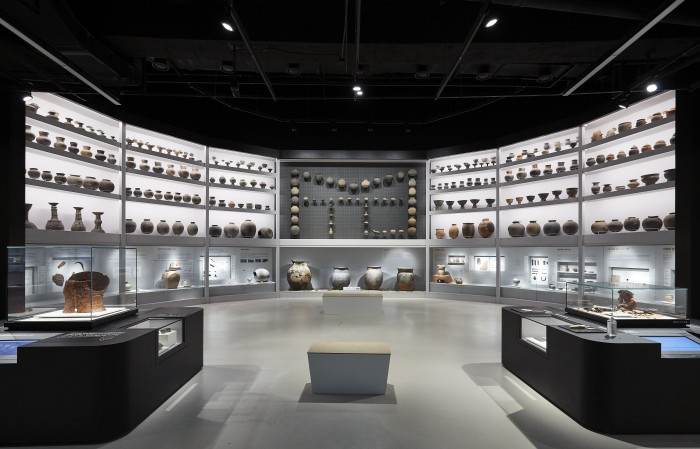
GyeongGi Provincial Museum (Director Seong-Hwan Kim) in The Gyeonggi Cultural Foundation completed the renovation of its exhibition room from September last year to the end of July this year, and will reopen on August 4th!
The GyeongGi Provincial Museum, which opened in 1996 and has reached its 25th year, is a comprehensive museum where you can experience the history and culture of Gyeonggi-do from prehistoric times to modern times through relics and remains. The GyeongGi Provincial Museum has established three major goals in promoting this improvement project.
The first one is a transition from a 'dark and closed space' to a 'bright and open space'. We tried to create a brighter and more pleasant atmosphere through a modern interior design with removing existing ceilings and walls and exposing concrete columns, and now, building materials such as transparent glass are more visible.
The second is the change from 'one-way forced movement, exhibition of artifacts by material' to 'selective movement, integrated exhibition by period'. Existing 'History Room-Archeology Room-Literature Library-Folk Living Room-Calligraphy Room-Donated Relics Room' was changed to 'Seonsa and Ancient Room-Korea Room-Chosun Room-Modern and Contemporary Room-Participation Donation Room. The museum is made to show the history and culture of Korea in an integrated way. The expansion of the exhibition hall to double the size is also different. Through this, it is possible to promote more diverse exhibition planning.
Third, the identity of Gyeonggi-do's history and culture, which has been organized by the GyeongGi Provincial Museum for the past 25 years, has been set as “GyeongGi, the fundamental land of the country,” and is intended to reveal the identity of “GyeongGi” more clearly. It was not GyeongGi in the metropolitan area, which seems to be subordinate to Seoul, but the culture of GyeongGi, which is the center of the culture of Goryeo, Joseon, and the millennium, and has diversity, openness, inclusiveness, and innovation, focusing on the “story of the people of Gyeonggi Province”.
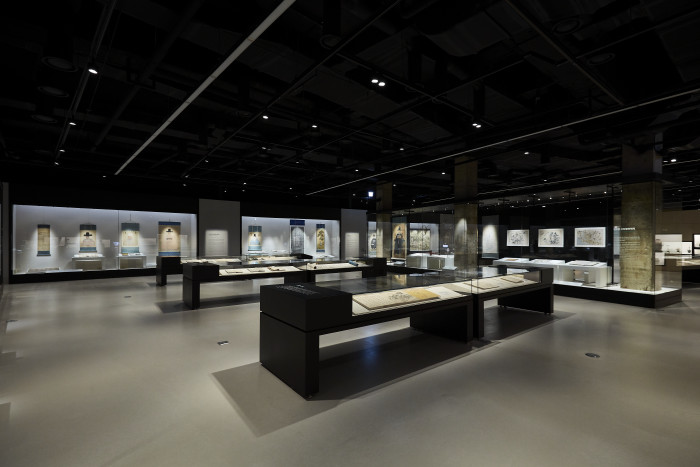
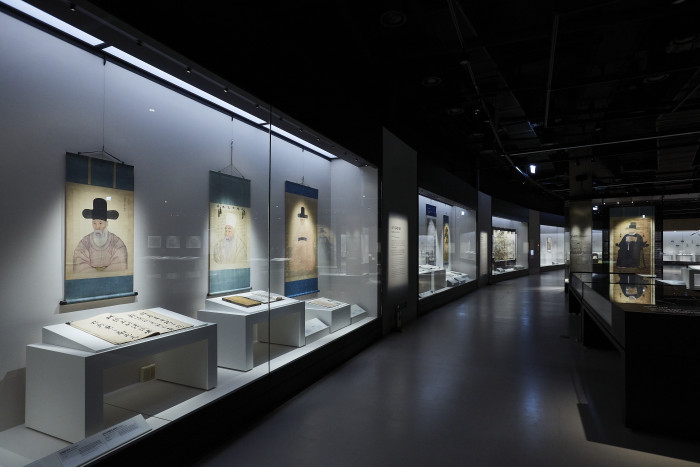
“Having GyeongGi (outskirt of capital area) in a country is like having roots in trees and springs in water. The good and bad GyeongGi politics have to do with the weight of the country as a whole.”
This is what King Jeongjong of the Joseon Dynasty said while appointing Lim Baek-ryeong (1498~1546) as the Gyeonggi Observatory. Trees deliver nutrients received from their roots to leaves and fruits, and water springs from springs, allowing all living things to live. When the roots and springs are dry, trees and water cannot exist. If the national highway (Seoul) was trees and water, GyeongGi was a root and a spring. In the Goryeo and Joseon Dynasty, ‘GyeongGi’ was defined as “the fundamental land of the country”. It is a key theme that runs through the entire story of this reorganization.
Jeong Do-jeon (1342~1398) and Kwon Geun (1352~1409) praised the nature of Gyeonggi-do. In GyeongGi, there was an industrial site in a fertile field where products from all over the place were busy, and labor songs were fun. It was a civilized space filled with the sound of reading from house to house in a city spread out as if branches were open. GyeongGi was the place to build to be wealthy peaceful.
In 'GyeongGi', the private capital policy by the Goryeo Emperor under the Haedongcheonha or by the King of Joseon was first implemented. The products and customs of 8 provinces were recreated through Gyeonggi, and culture and arts outside the country were shown to the people of Gyeonggi Province and then spread across the country. Gyeonggi culture was created by refining our own culture and foreign culture. The identities of GyeongGi culture, such as openness, diversity, dynamism, and reform, were created in this process. GyeongGi Provincial Museum wants to show this kind of historical culture created by the people of Gyeonggi Province. This is because the thousand-year-old Gyeonggi culture has shaped our historical culture.
▶ Restarting the educational program
Along with this, the educational programs that have been suspended will be restarted. An educational program related to the “This Is GyeongGi” exhibition, where elementary school students can experience the newly formed permanent exhibition hall, and the “Prehistoric Invention”, a children's discovery experience program, will be held. In particular, the museum's representative educational program,
To prevent the spread of COVIS-19, various non-face-to-face education programs were also established. On the website, you can see the educational program “Going to GyeongGi Provincial Museum” through video, and educational materials along with videos are provided free of charge to organizations applying for education.
There is also a special cultural program introducing the reorganized permanent exhibition hall. GyeongGi Provincial Museum Director Kim Seong-hwan and 7 curators participate in “New story of GyeongGi Provincial Museum with Curator - Curator Talk! Talk!” will be held in the exhibition room for about an hour from 2pm on the second and fourth Wednesdays from August to December.
▶ Special exhibition to commemorate the reopening
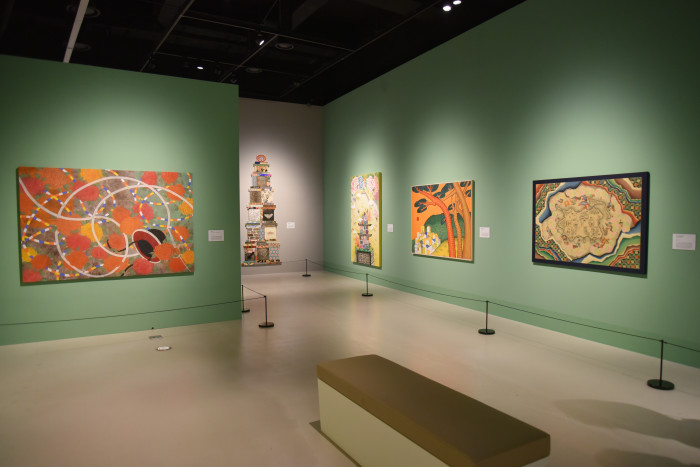
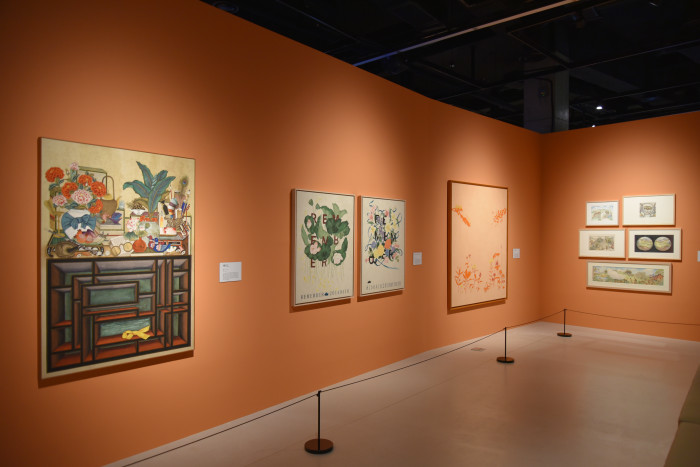
Held as a special exhibition to commemorate the reopening, 《Gyeonggibyelgok: Folktale, Singing Gyeonggi》 will be held in the special exhibition room on the 1st floor from August 4th to February 14th, 2021. In this exhibition, 30 folk paintings living in Gyeonggi-do and 4 media art and installation artists with novel artistic features will participate. The works presented by participating artists transform classical themes related to the history and traditions of Gyeonggi Province into modern sensibility and technology, providing excitement and fun.
Exhibits include 'Part 1: Embracing GyeongGi's Cultural Heritage', 'Part 2: Drawing GyeongGi Historical Figures', 'Part 3: Jeongjo and Bookgado', 'Part 4: Containing Scenes of History', etc. It consists of parts. The “Artist – Minhwa(Traditional Painting) Talk” will also be held until February 2021. Modern exhibitions, contemporary folk paintings, media art, and installation art at the museum are expected to provide a new insight into Gyeonggi Province's cultural heritage, historical figures and events.
Special lectures related to exhibitions and dialogue programs with artists will also be held. At 2 pm on August 19th, Professor Byeong-mo Jeong of Gyeongju National University will give a lecture on modern folk paintings of Gyeonggi-do, and at 2 pm on October 21, there will be a lecture on folk paintings and Korean art by Professor Eun-jung Cho of Korea University. During the exhibition period, there is also a program of conversations with artists in which the artists directly participate. For more information, please visit the GyeongGi Provincial Museum website.
The COVIS-19 pandemic is creating a new everyday life. Cultural facilities such as public museums and art galleries, which were closed until recently, are now able to welcome visitors, although limited. GyeongGi Provincial Museum is no exception in front of COVIS-19. To enter the GyeongGi Provincial Museum, you must make a reservation in advance through the website. The number of visitors is limited to 4 times a day and 50 people per session. On-site reservations are only 5 people per day, so please make sure to make a reservation in advance.
For more information, please check the website of GyeongGi Provincial Museum |
<Copyright(c)2002 GGC All rights reserved.>
- Writer
- GyeongGi Cultural Foundation
- About
- Everything about the GyeongGi arts and culture, GGCF
- homepage
- https://www.ggcf.kr/